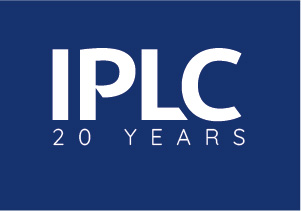
Supercharge your business for your next trade show
Only a few are really prepared for what needs to happen during the show itself
By Remy Medina and Paul Stainton
Trade shows can be an effective way for businesses to showcase their products or services, network with potential clients and partners, and gather market intelligence. We regularly discuss trade shows with commercial directors in our Private Label Groups and gather that most of the preparation time is dedicated to the logistics of the event: stand preparation, samples, arranging events for own employees and/or clients, accommodation, transport, etc.
Only a few are really prepared for what needs to happen during the show itself. As former buyers, we encountered numerous suppliers with impressive stands, but barely any preparation for discussion with potential buyers. Retailers send their buyers expecting them to be as effective as possible. Efficient meetings are therefore crucial for the buyer, but often the buyer is faced with unprepared potential suppliers. The buyer has to explain in detail about their retailer, their position in the market, their quality, ESR and logistics requirements, before they can even start talking about what specific products may be suitable for them.
A trade show is an ideal platform for suppliers to meet potential new customers and, when a buyer comes to your stand, it is imperative to make the most of the time you have to spend with them, making the maximum impact possible. Crucially, you don’t want to jeopardize any future potential relationship with a poor performance during the show.
Therefore, for your next trade show, if you want to make the most use of the buyer’s availability (and make them happy)
- Determine your goals: What do you want to achieve at the trade show? Do you want to generate leads, showcase your products, network with potential partners, or gather market intelligence? Identifying your goals will help you focus your efforts and allocate your resources effectively.
- Research the trade show: Find out as much as you can about it, including the size, demographics, and local retail environment. Look for opportunities to stand out, such as by participating in a panel discussion or sponsoring an event. And obviously understand the local retail dynamics by visiting stores in the local area.
- Promote your participation: Use social media, email marketing, and other channels to promote your participation in the trade show and encourage people to visit your stand.
- Prepare marketing materials: Develop materials that clearly communicate the value of your products or services adapted to the market environment and potential leads.
- Train your team: Ensure that your team members are knowledgeable about your products or services and are prepared to answer questions from potential clients and partners. Make sure that people know each other roles and that there is always someone on the stand.
- Book meetings ahead of the show with your current and potential customers. Buyers are very busy during the show opening hours and appreciate a specific time to meet you on your stand. Ensure you prepare fully, understanding the buyer’s current range and their retailer requirements along with the retailer’s current performance in their markets.
- Follow up after the trade show: Don’t let potential leads go cold. Follow up with anyone you meet at the trade show within a few days to reinforce your value proposition and encourage them to take the next step.
In addition to these general steps, you may want to consider focusing on the following areas specific to private label products:
- Highlight the unique features and benefits of your private label products.
- Demonstrate the value proposition of your private label products for retailers and other businesses.
- Showcase the range of private label products you offer, as well as any customization options.
- Discuss your private label manufacturing capabilities and capacity as availability may become crucial for retailers.
- Share any relevant case studies or testimonials from customers who have successfully used your private label products.
You might be thinking that simply being present is sufficient, but well-prepared teams will achieve a higher number of leads during trade shows. Use this unique momentum to grasp the attention of potential buyers with a clear and unique message.
If you need support to ‘supercharge your business for trade shows’, contact us to find more about our dedicated private label approach on info@iplc-europe.com
In the next newsletter we will send out in February we will discuss ‘It’s not Just Price that will Win you More Business’.
This is 4th newsletter in a series of 12 that we will publish in the coming months. The topic of the previous newsletters were:
- How to become a Private label supplier of choice
- Being the best Private Label Operator
- The Art of Negotiation for Private Label Contracts
All newsletters can be found on the IPLC website To read more

